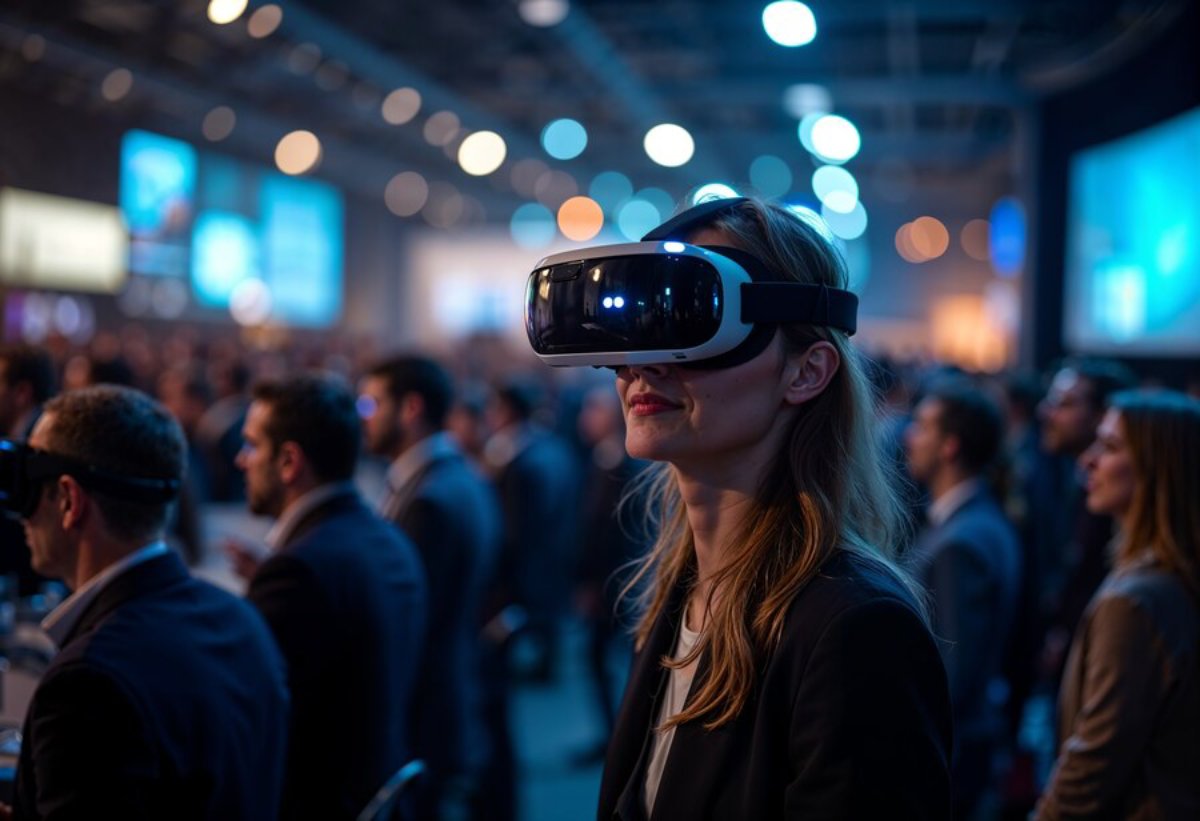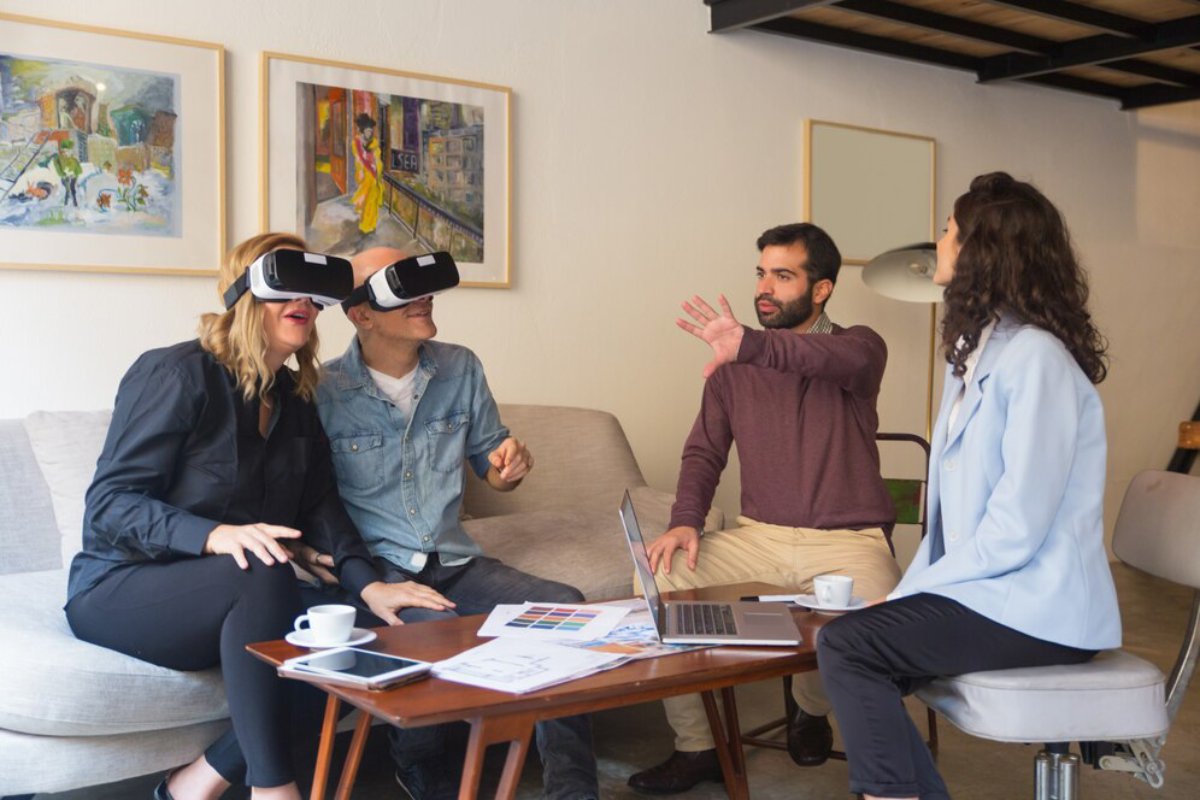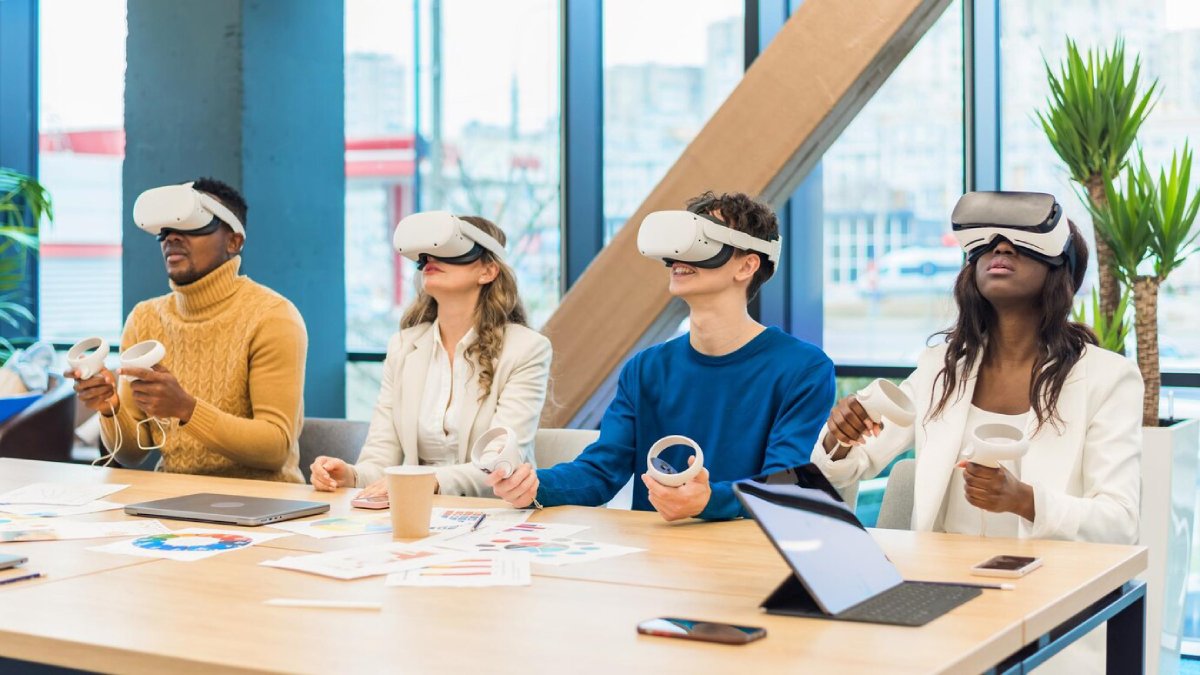
Hosting Virtual Events: How to Engage Audiences in VR Spaces
With most communications increasingly digitised, virtual reality (VR) offers an extraordinary opportunity to connect with your audiences. To allow much broader at-home access to content, hosting virtual events in VR gives us some creative new tools for audience engagement. It knows no bounds and makes memories of a lifetime. But how do you ensure your virtual reality events are as engaging as possible? This guide delves into the topic of hosting in virtual reality. It provides suggestions on connecting and retaining your audience in VR environments.
Key Benefits of Hosting Virtual Events in VR
Virtual events in VR are revolutionising how we think about gatherings, offering unprecedented opportunities for interaction and engagement. Here are some reasons why hosting in virtual reality is gaining traction:
Breaking Geographical Barriers
One of the most significant advantages of virtual events in VR is the ability to transcend physical limitations. Attendees from across the globe can participate without the need for travel, making it an inclusive option for international audiences. This global reach enhances networking opportunities and allows for a diverse exchange of ideas.
Immersive Experiences
VR provides an immersive experience that traditional online platforms cannot match. By creating a 3D environment, participants can interact with their surroundings and each other more naturally and engagingly. This level of immersion can lead to higher retention rates and a more memorable event experience.
Cost-Effectiveness
Hosting in virtual reality can be more cost-effective than physical events. There are no venue hire costs, and travel, accommodation, and logistics expenses are significantly reduced. This allows organisers to allocate resources to enhance the virtual experience, such as developing interactive content or hiring expert speakers.
Enhanced Engagement
Engaging VR audiences requires a different approach than traditional events. VR’s interactive nature allows for real-time feedback, gamification, and personalised experiences, which can significantly boost engagement levels. Attendees can participate in hands-on activities, explore virtual spaces, and interact with other participants, creating a more dynamic and engaging atmosphere.
Additional Expert Tips & Common Mistakes to Avoid
While virtual events in VR offer numerous benefits, there are challenges and common pitfalls that organisers should be aware of. Here are some expert tips and mistakes to avoid when hosting in virtual reality:

Prioritise User Experience
The success of a VR event largely depends on the user experience. Ensure the VR platform is user-friendly and accessible to all participants, regardless of their technical expertise. Provide clear instructions and support for those new to VR technology.
Avoid Overloading Content
Packaging your virtual event with as much content as possible is tempting, but this can overwhelm participants and detract from the overall experience. Focus on quality over quantity, and ensure that each session or activity is purposeful and engaging.
Test Technology Thoroughly
Technical glitches can disrupt the flow of an event and diminish attendees’ experience. Before the event, thoroughly test all technology and platforms to identify and resolve any issues. Have a technical support team on standby during the event to address any problems.
Encourage Interaction
Engaging VR audiences involves fostering interaction among participants. Encourage attendees to engage with each other through networking sessions, collaborative activities, or discussion forums. This interaction can enhance the community and make the event more enjoyable.
Advanced Insights / Expert Recommendations
To truly excel in hosting virtual events in VR, it’s essential to go beyond the basics and incorporate advanced strategies to elevate the experience for participants. Here are some expert recommendations to consider:

Personalise the Experience
Personalisation can significantly enhance engagement levels in VR events. Use data and analytics to tailor the experience to individual preferences and interests. Offer personalised agendas, recommend sessions based on past behaviour, and provide customised content to make attendees feel valued and engaged.
Leverage Gamification
Gamification is a powerful tool for increasing engagement in virtual events. Incorporate game-like elements such as challenges, leaderboards, and rewards to motivate participation and interaction. This can create a sense of competition and achievement, making the event more enjoyable and memorable.
Incorporate Multi-Sensory Elements
While VR primarily focuses on visual and auditory stimuli, incorporating multi-sensory elements can enhance the immersive experience. Consider using haptic feedback, spatial audio, or scent technology to create a more realistic and engaging environment for participants.
Collaborate with Influencers
Partnering with influencers or industry leaders can boost the credibility and reach of your virtual event. Invite them to speak, host sessions, or participate in panel discussions to attract their followers and add value to the event. Their expertise and influence can enhance the overall experience for attendees.
The Future of Audience Engagement in VR Events
How VR virtual events are transforming the way we meet online. They offer new methods of interaction and relationship-building. Virtual reality events can be phenomenal and created by organisers. They should know the benefits, avoid mistakes, and use innovative strategies. Our guide provides concrete insights and recommendations on data to help you build an authentic experience to capture and engage your attendees when planning your next VR event.
So, Are You Ready to Bring Your Events Into The Future with Virtual Reality? Experience VR and discover how it can transform how you present and connect with audiences. This is the future of events, and the time has come to immerse yourself in its potential.


